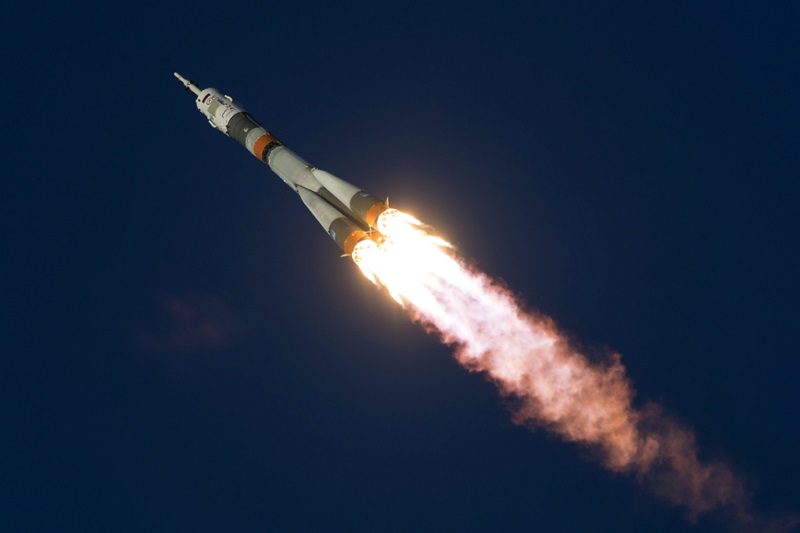On Friday, an unmanned rocket carrying cargo blasted off into space, in the first launch of a Russian-made Soyuz-FG rocket from Kazakhstan’s Baikonur cosmodrome since the dramatic aborted launch in October.
At 18:14 GMT (00:14) local time, the rocket took off with a Progress MS-10 spacecraft carrying supplies to the International Space Station (ISS).
Russia’s space agency said that the Progress MS-10 is expected to dock at the ISS on November 18.
On October 11, the last manned mission to the ISS was abruptly cut short two minutes after liftoff when the Soyuz-FG rocket failed, forcing a Russian cosmonaut and US astronaut to perform an emergency landing.
It is assumed that the failure of the rocket was caused by a sensor that was damaged during an assembly at the Soviet era-cosmodrome at Baikonur, according to Russian investigators.
Since the failure, the first manned mission to the ISS is due to take off at the beginning of December.
However, on November 14, ISRO’s communications satellite GSAT-29 was launched successfully. It has ‘Geo-Eye’ to monitor India.
India’s heaviest rocket GSAT-29 was successfully launched from Sriharikota, country’s rocket port in Andhra Pradesh on the coast of the Bay of Bengal.
This sophisticated communications satellite GSAT-29 was hauled into the space today by ISRO’s Geosynchronous Satellite Launch Vehicle Mark III (GSLV Mk-III-D2) – on its second developmental flight.
Also read: ISRO’s communications satellite GSAT-29 launched; has ‘Geo-Eye’ to monitor India

